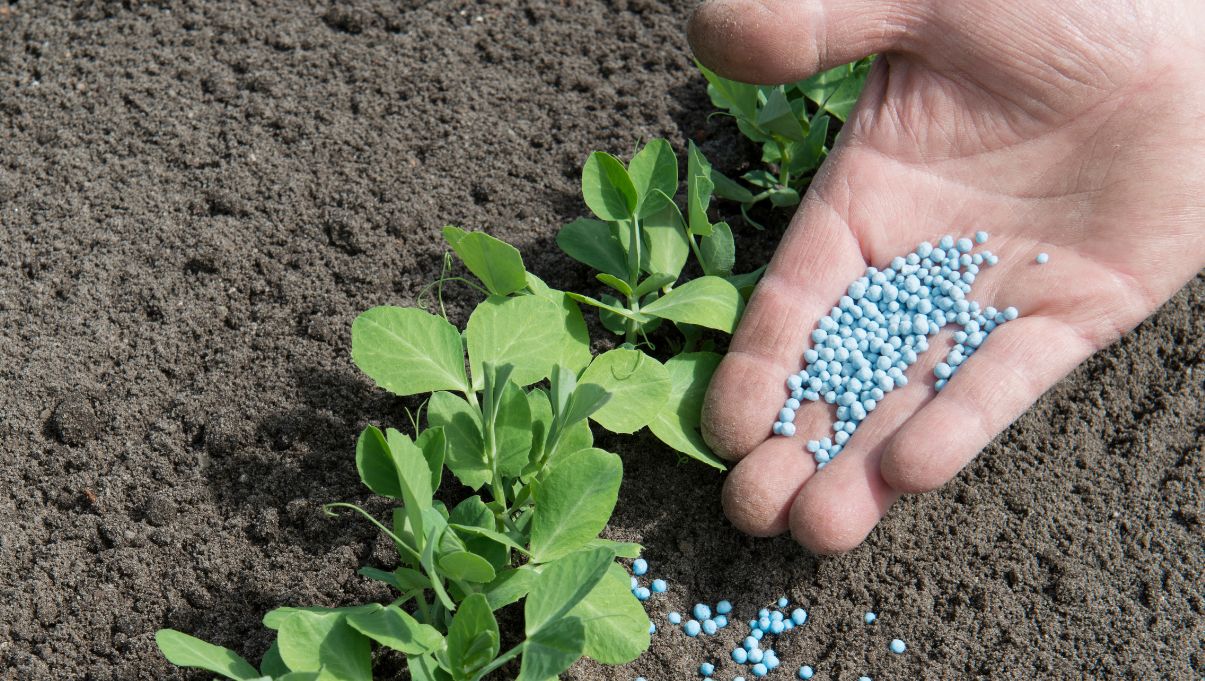Introduction:
Are you looking to grow the best veggies in town? Look no further! The secret to a successful vegetable garden lies in choosing the right fertilizer. But with so many options out there, how do you know which one to choose? Fear not, we’ve done the research for you and compiled a list of the best fertilizers for your vegetable garden.
Top Picks
- Best Overall: Miracle-Gro Performance Organics All Purpose Plant Nutrition
- Best Budget: Jobe’s Organics Vegetable & Tomato Granular Fertilizer
- Best Organic: Dr. Earth Organic 5 Tomato, Vegetable & Herb Fertilizer
- Best Liquid: Neptune’s Harvest Organic Hydrolized Fish & Seaweed Fertilizer
- Best Slow-Release: Osmocote Smart-Release Plant Food Plus Outdoor & Indoor
- Best for Tomatoes: Tomato-tone Organic Fertilizer
- Best for Root Development: Roots Organics Rod Original Potting Soil Fertilizer
Buying Guide
Nutrient Content:
The nutrient content of the fertilizer is one of the most important factors to consider. The three primary nutrients that plants require are nitrogen, phosphorus, and potassium. Look for a fertilizer that provides balanced levels of these nutrients, such as The Andersons Innova Organic Fertilizer. This product has an NPK ratio of 4-4-4, which is ideal for most vegetable plants.

Soil Type:
It’s essential to consider the type of soil in your garden when choosing a fertilizer. If you have sandy soil, you’ll need a fertilizer that can help retain moisture, such as Espoma Organic Garden-Tone Fertilizer. If you have clay soil, you’ll want a fertilizer that can help improve drainage, like Fox Farm Happy Frog Tomato and Vegetable Fertilizer.
Application Method:
The application method of the fertilizer is another important factor to consider. Some fertilizers are granular and need to be spread by hand, while others are liquid and can be applied with a hose-end sprayer. Jobe’s Organics Vegetable & Tomato Granular Fertilizer is an excellent option for those who prefer granular fertilizers, while Miracle-Gro Water Soluble All Purpose Plant Food is ideal for those who prefer liquid fertilizers.
Organic vs. Synthetic:
Organic fertilizers are made from natural materials and are a great choice for those who want to garden using sustainable practices. They release nutrients slowly, which can help prevent over-fertilization. Dr. Earth Organic 5 Tomato, Vegetable & Herb Fertilizer is an excellent choice for those who prefer organic fertilizers. Synthetic fertilizers are made from chemicals and are faster-acting but can also lead to over-fertilization. If you choose a synthetic fertilizer, be sure to follow the application instructions carefully.
pH Levels:
The pH level of your soil can affect the availability of nutrients to your plants. If your soil is too acidic, it can prevent plants from absorbing nutrients. If it’s too alkaline, it can cause nutrient deficiencies. Look for a fertilizer that can help balance the pH levels of your soil, such as Jobe’s Organics Garden Lime or Espoma Organic Soil Acidifier.
Slow-Release vs. Fast-Release:
Slow-release fertilizers release nutrients slowly over time, which can help prevent over-fertilization and ensure that your plants receive a steady supply of nutrients. Fast-release fertilizers, on the other hand, release nutrients quickly and can provide a quick boost of growth. Osmocote Smart-Release Plant Food Plus Outdoor & Indoor is an excellent option for those who prefer slow-release fertilizers, while Miracle-Gro Performance Organics All Purpose Plant Nutrition is a great choice for those who prefer fast-release fertilizers.
Type of Vegetables:
Finally, consider the type of vegetables you’re growing when choosing a fertilizer. Some vegetables, like tomatoes and peppers, have specific nutrient requirements and may benefit from a fertilizer formulated specifically for them. Tomato-tone Organic Fertilizer is an excellent choice for those growing tomatoes, while Jobe’s Organics Vegetable & Tomato Granular Fertilizer is ideal for a wide range of vegetables.
FAQs
What is the best time to fertilize a vegetable garden?
Fertilizing should be done during the growing season, starting in early spring when the plants begin to grow. It’s also a good idea to fertilize again after the first harvest and then every 4-6 weeks after that.

Can I use the same fertilizer for all types of vegetables?
While some fertilizers are formulated for general use on a variety of vegetables, others are designed specifically for certain types of plants, such as tomatoes or peppers. Using a fertilizer that’s formulated for the specific type of vegetable you’re growing can help ensure that it gets the right nutrients it needs.
What’s the difference between organic and synthetic fertilizers?
Organic fertilizers are made from natural materials, such as compost, manure, or bone meal, and release nutrients slowly over time. Synthetic fertilizers, on the other hand, are made from chemicals and release nutrients quickly. Organic fertilizers are generally considered more environmentally friendly, while synthetic fertilizers can provide a quicker boost of growth.
Can I make my own fertilizer for my vegetable garden?
Yes, you can make your own fertilizer using compost, manure, or other natural materials. However, it’s important to ensure that the fertilizer provides the necessary nutrients in the correct proportions for your plants.
How often should I water my vegetable garden after fertilizing?
It’s important to water your vegetable garden after fertilizing to help the nutrients reach the roots of the plants. Watering once or twice a week, depending on the weather and soil conditions, is generally sufficient.
Conclusion
From organic options to synthetic blends, there’s a fertilizer out there for every type of vegetable garden. So get ready to enjoy a bumper crop of delicious veggies with our top picks for the best fertilizer!



+ There are no comments
Add yours